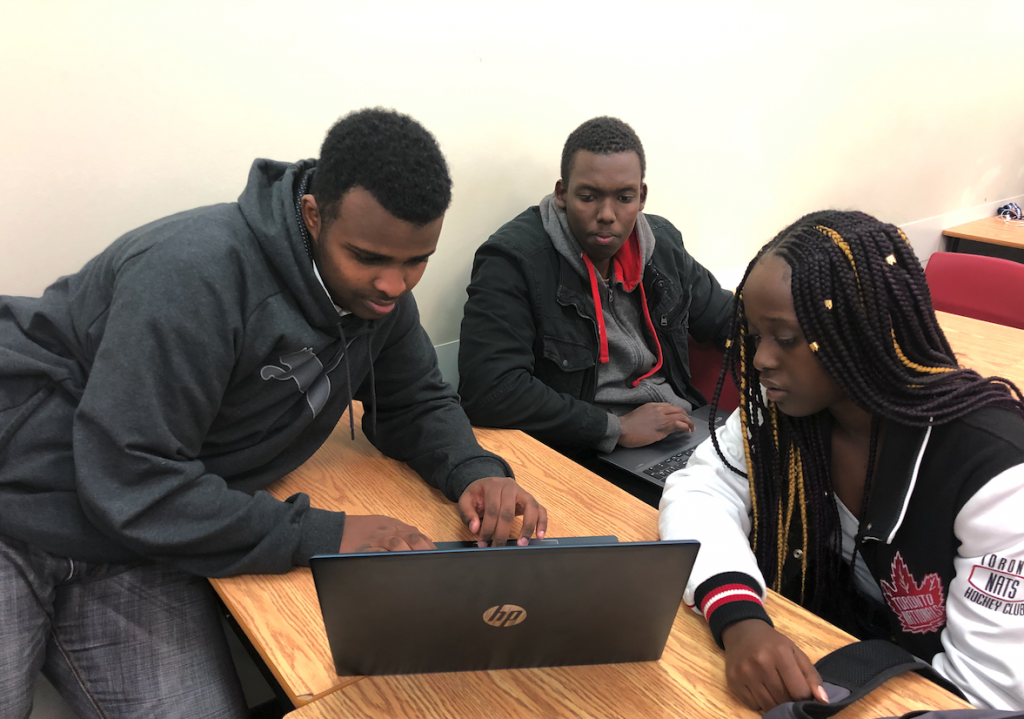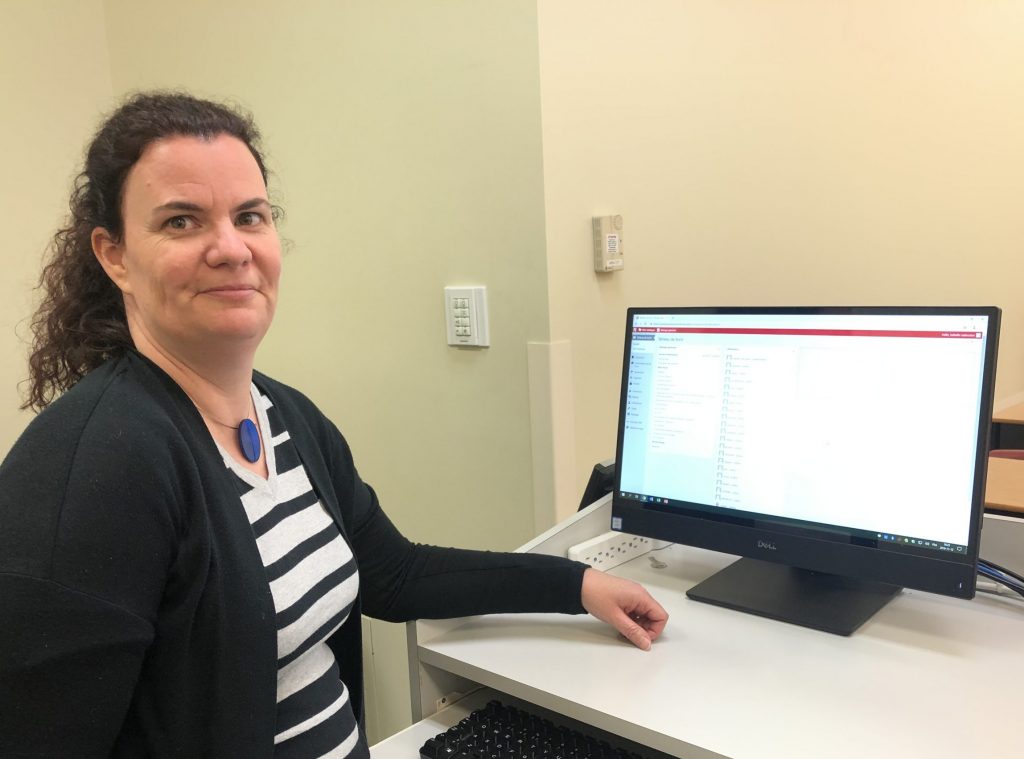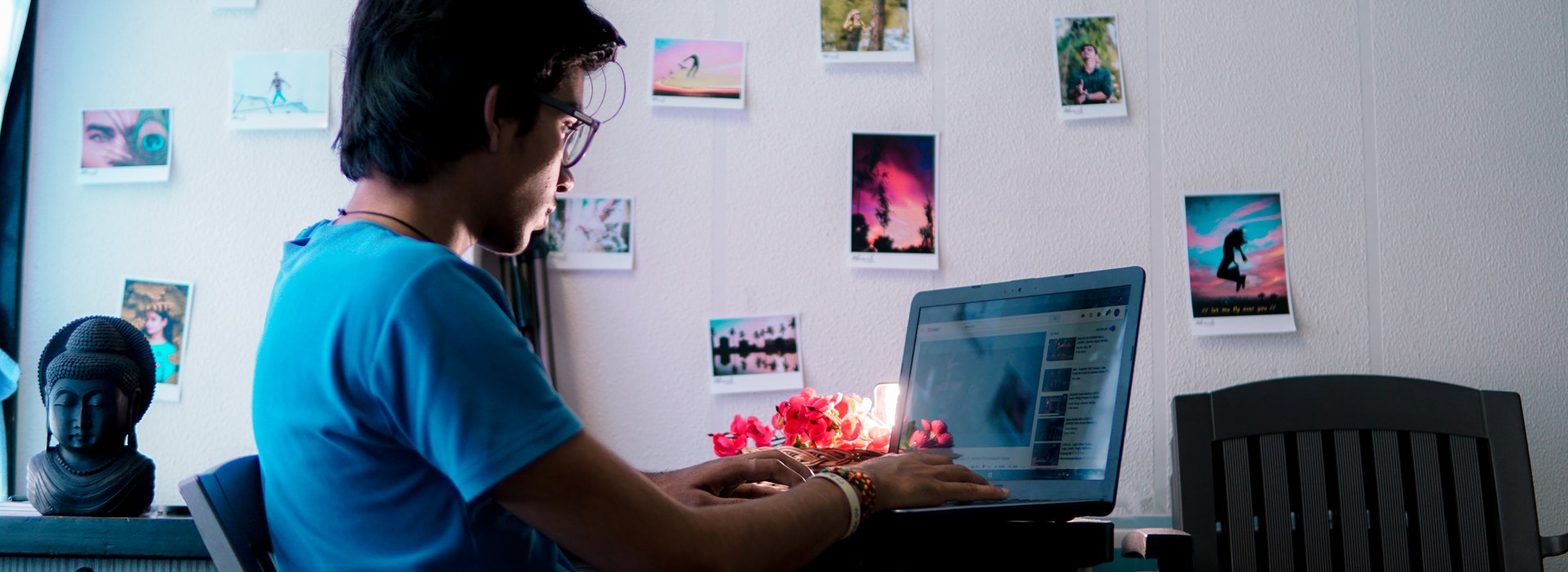
Warning: Undefined variable $post in /var/www/html/rc-ecampus.ecampusontario.ca/wp-content/themes/ecampusontario/functions.php on line 183
Warning: Attempt to read property "ID" on null in /var/www/html/rc-ecampus.ecampusontario.ca/wp-content/themes/ecampusontario/functions.php on line 183
4 min. Read
Professor facilitates French-language biology textbook by students, for students
Isabelle Ladouceur, a professor at La Cité in Ottawa, is on a mission to increase access to open educational resources (OER) for French-speaking students. Not only are OER flexible and affordable alternatives to the traditional textbook, but, as Isabelle discovered, students may become more involved in their learning through OER creation. That’s why she collaborated with some of her science students to develop a resource that complements General Biology, a first-year course she often teaches. Isabelle talks to the eCampusOntario community about the value of OER in Franco-Ontario teaching and learning.
What are the added values of using OER in education?
The added value of using OER in post-secondary education is the flexibility that the resources offer. In the general biology course, students will be involved in developing and implementing OER that is tailored to the needs of the course and to the real world of Franco-Ontarian post-secondary education. Most resources (paper or digital) use examples with Quebec or European origins, and cultural references could be expanded to reflect the increased diversity of post-secondary learners, especially international students. OER enable us to adapt the resources so that the students who attend our institutions are able to see themselves reflected in them.

The strategy adopted at La Cité takes the concept to the next level: The student is central to the process of creating OER. Students will be involved in the various stages of developing, implementing and using this online resource, taking a collaborative approach where each student will be asked to produce one page of the manual in question. The experience goes beyond theoretical learning in the classroom. The idea is to carry this initiative on from semester to semester in order to add to or enhance the resource based on advances in biology and on students’ various ways of learning. We will then have OER that are in a state of constant transformation.
We must also not forget that OER are free of charge and accessible to everyone at all times. In the world of post-secondary education, potential savings of hundreds of dollars is a clear financial benefit.

How are OER important for the francophone educational community?
There are relatively few post-secondary resources in French in comparison with the English-language side, even though the concepts are no different from one language to the other. Examples from Quebec and Europe are popular, but not all resources should be modeled solely on them. OER allow for connections to be made within the diversity of the Francophone experience, across communities, and enable us to share and promote the French fact beyond the walls of educational institutions and geographical barriers. French-language OER allow knowledge to be shared among the Francophone and Francophile communities.
How can OER increase students’ commitment to their classes?
With the initiative implemented at La Cité, students are central to their own learning process. They are actively involved in the process of creating, developing and implementing OER in which they see themselves reflected. Students use an adapted vocabulary and explain the concepts, as they have understood them, in plain language, and this enables readers to see the student perspective. It becomes a resource created by students, for students.
Through this process, the resource is tailored to the course and provides a way of checking students’ understanding of concepts and explaining technical information in appropriate plain language for a large virtual community. The students were enthusiastic and motivated to create a tangible open resource that goes beyond a mere homework assignment for a course mark. They were proud to leave their stamp on it and take part in a collaborative project with their classmates. The learning was more than just academic. Mutual support, creativity and involvement were essential parts of the experience.
How has eCampusOntario been supportive during the development of this project?
The eCampusOntario team is attentive to our needs and responds in an effective and timely manner. It provides specialized, individualized and genuine support that takes into account the nature of the task. Whether by holding information sessions with students or having virtual meetings or through email correspondence, I received appropriate support at all stages of the process.
The adventure is not over. Now we need to prepare our OER for publication on the virtual library website. A new milestone equals a new challenge!
This textbook is currently under revision and isn’t publicly available. Stay tuned!



